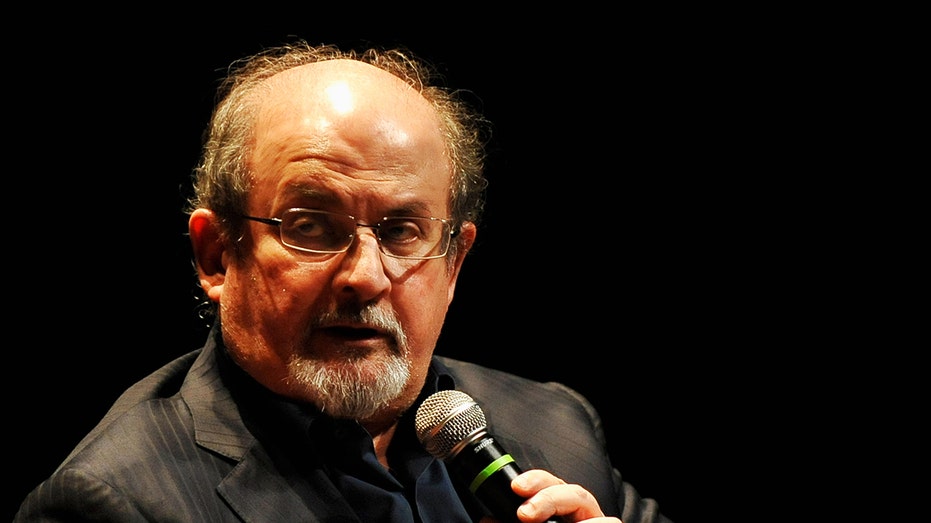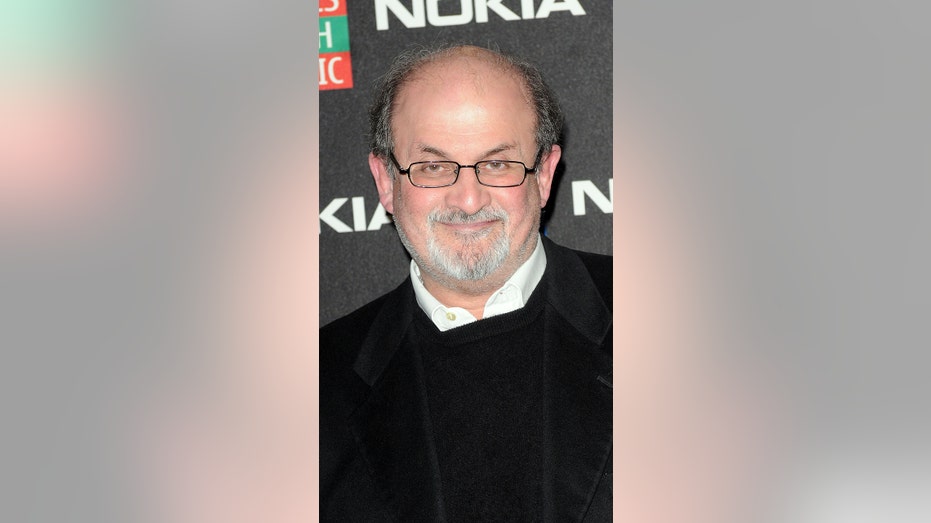Salman Rushdie, attacked at New York book event, explored good vs. evil in his work
Salman Rushdie, author of 'The Satanic Verses,' likened his writing to a 9-5 job
Suspect in Salman Rushdie attack now in custody
Fox News' Bryan Llenas reports from Chautauqua, New York, where Iranian author Salman Rushdie was stabbed and rushed to the hospital
British-Indian writer Salman Rushdie, the author whose book "The Satanic Verses" led to death threats from Iran in the 1980s, was attacked on stage on Friday in Chautauqua, New York, just as he was about to give a lecture.
Rushdie, 75, has written a total of 13 novels. The most notable among them, according to many, is "The Satanic Verses."
That novel was Rushdie’s fourth. It was published in September 1988.
Rushdie has a net worth of approximately $10 million, according to Celebrity Net Worth.
His newest novel, "Victory City," is due to be published in Feb. 2023.
AUTHOR SALMAN RUSHDIE REPORTEDLY STABBED BEFORE NEW YORK SPEECH
Based on the life of the prophet Muhammad, Rushdie explored contemporary life in "The Satanic Verse," along with the theme of good versus evil.
His book was controversial to many; some felt it appeared to mock the most sensitive tenets of Muslim religious beliefs, according to a piece in The Print.

Novelist Salman Rushdie was attacked at a book event on Friday. He was reportedly stabbed in the neck before he was due to take the stage. (Jerod Harris/Getty Images / Getty Images)
Although the book's publication angered many Muslims, "The Satanic Verses" received critical acclaim. The title was a 1988 Booker Prize finalist — and it won the 1988 Whitbread Prize for novel of the year.
The title refers to the Satanic Verses, a group of verses in the Koran.
NYC MCDONALD'S WORKER REPORTEDLY SHOT OVER COLD FRENCH FRIES HAS DIED, POLICE SAY
"The story begins with a bang," notes the book's Amazon description, "the terrorist bombing of a London-bound jet in mid-flight. Two Indian actors of opposing sensibilities fall to earth, transformed into living symbols of what is angelic and evil."
"Sometimes you have a person you want to write about — sometimes there’s an event you want to explore."
Many in the Muslim world consider the book to be blasphemous, and the book has been banned in Iran since 1988.
A fatwa was issued in 1989 by the Ayatollah Khomeini, calling for Rushdie's death.
Rushdie shared a few details about his creative process several years ago.
In 2015 in an interview about his work, Rushdie told The Harvard Business Review, "I’ve always told myself to treat it like a 9-to-5 job. You just go do it. It doesn’t matter whether you’re feeling good that day."
He continued, "I don’t think writers or artists can afford to have a 'creative temperament' or to wait for inspiration to descend."
He added, "You have to simply sit there and make yourself do it. And over the years that’s a discipline I really developed."
COULD SCOTT PETERSON RECEIVE A NEW TRIAL? A LOOK AT COSTS FROM HIS 2004 PROCEEDINGS
Harvard Business Review also asked him, "How can you tell you’re ready to start a new book?"
He replied, "Usually because an idea is nagging at me. Sometimes you have a person you want to write about — sometimes there’s an event you want to explore."

Salman Rushdie wrote "The Satanic Verses," which inflamed some Muslims and caused a fatwa to be issued against him. (Samir Hussein/Getty Images / Getty Images)
Rushdie also said, "If an idea sticks around, still interests me, crops up every morning when I wake — that tells me I need to pay attention. And sometimes that can take many years."
During his notable career Rushdie has also published four works of nonfiction and a collection of short stories. He also edited two fiction anthologies.
In June 2007, Rushdie was appointed a Knight Bachelor by Queen Elizabeth II for services to literature.
He is a commandeur in the Ordre des Arts et des Lettres of France, among other honors, according to his website.
He served for five years as the Distinguished Writer in Residence at Emory University in 2007, and in May 2008, he was elected to the American Academy of Arts and Letters.
He is an honorary professor in the Humanities at M.I.T, and University Distinguished Professor at Emory University. Also, Rushdie is a Distinguished Writer in Residence at New York University.
GET FOX BUSINESS ON THE GO BY CLICKING HERE
For two years Rushdie served as president of The PEN American Center, the world's oldest human rights organization.
There has continued to be a bounty on Rushdie's life. A group of Iranian news organizations reportedly collected over half a million dollars in 2016, then raised the bounty for killing Rushdie to almost $4 million, according to The Financial Times.





















